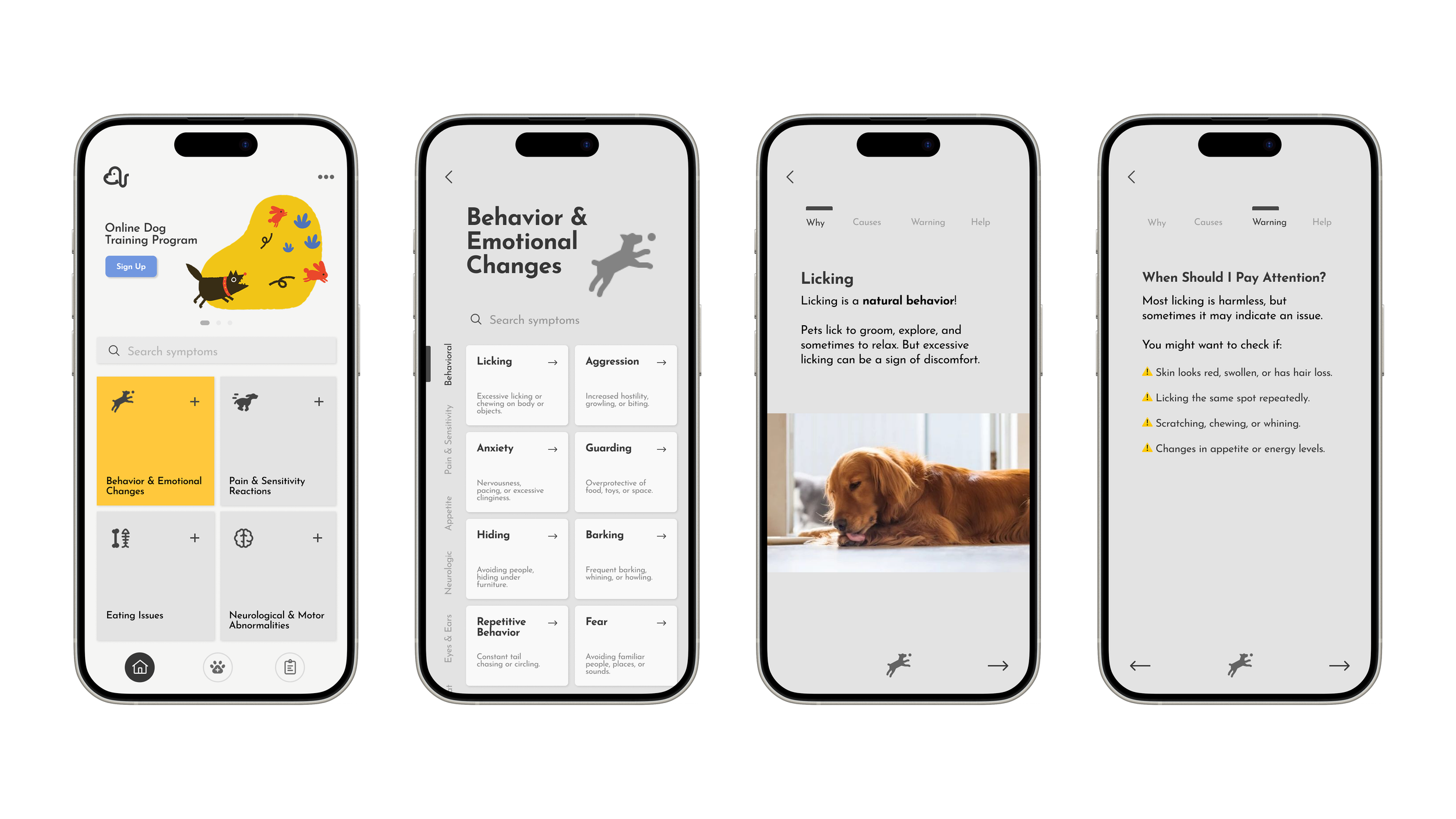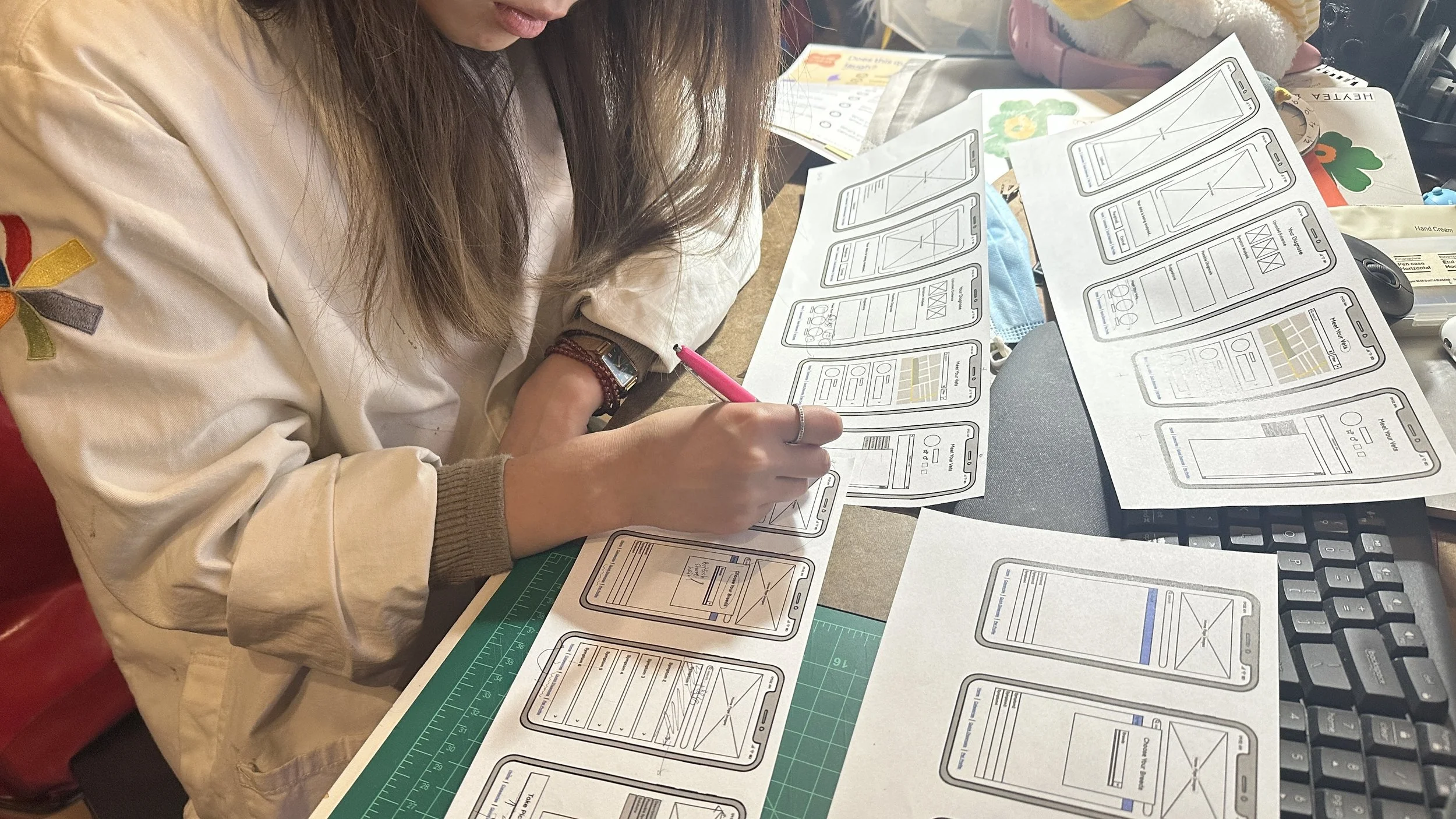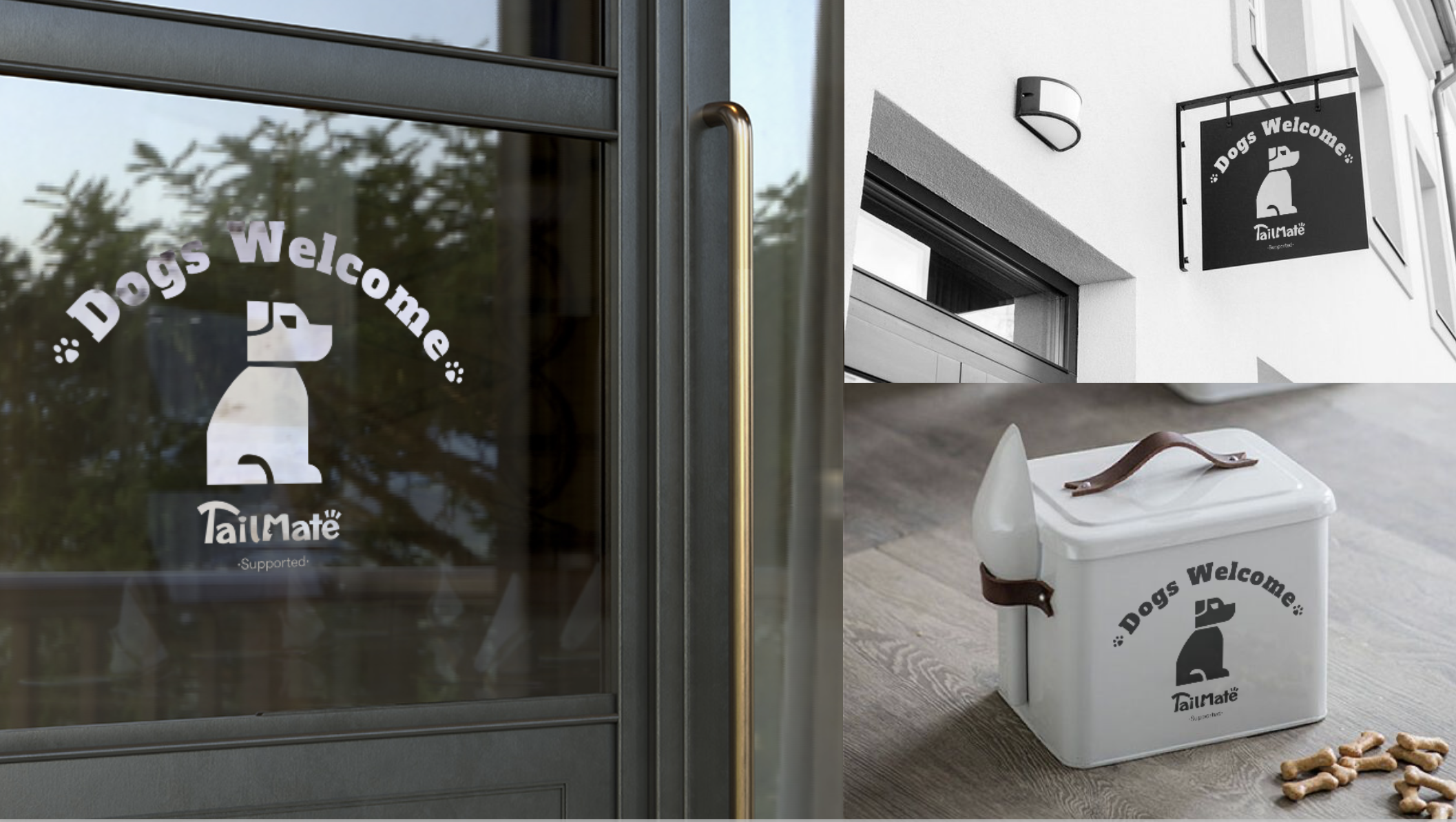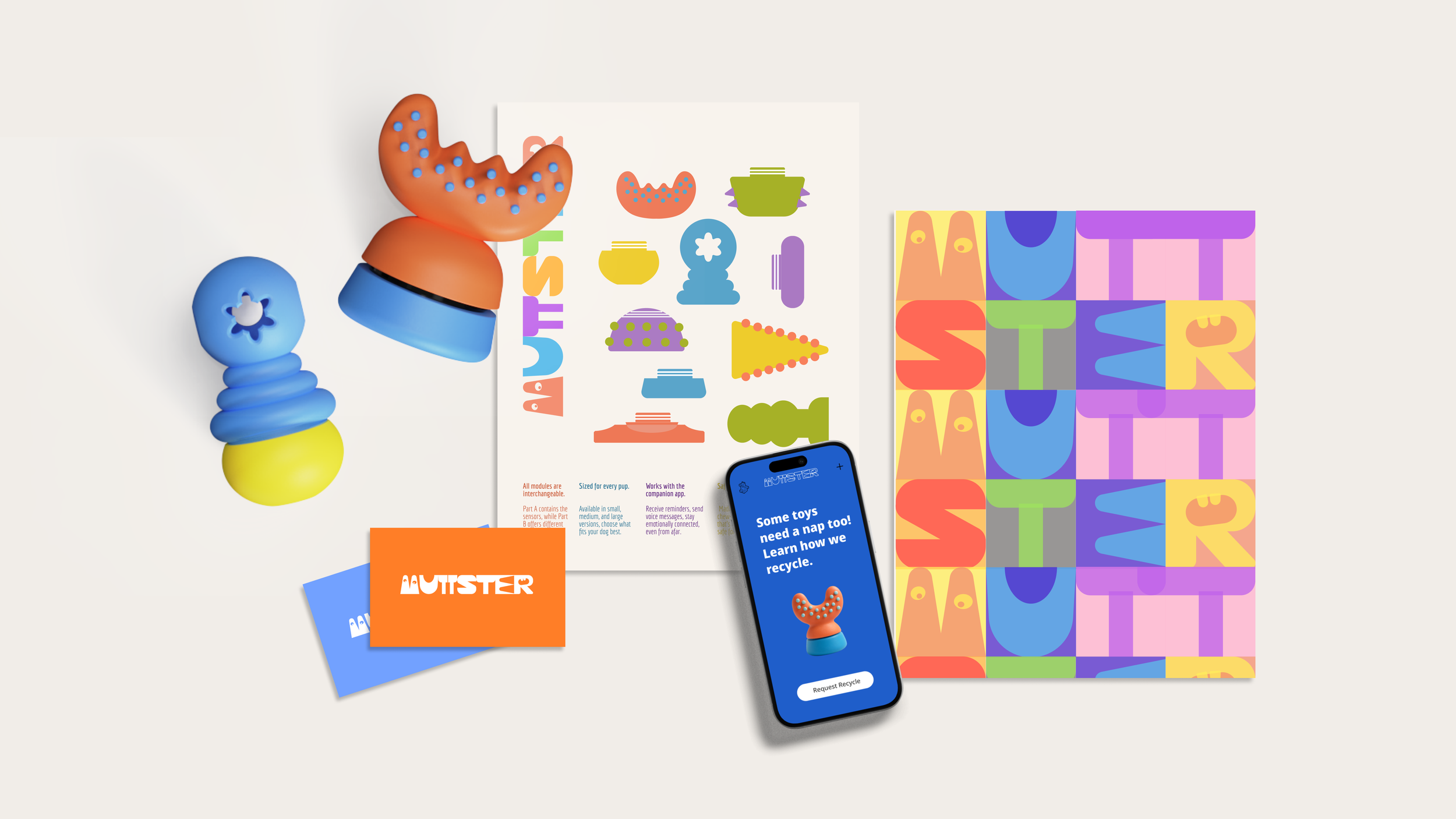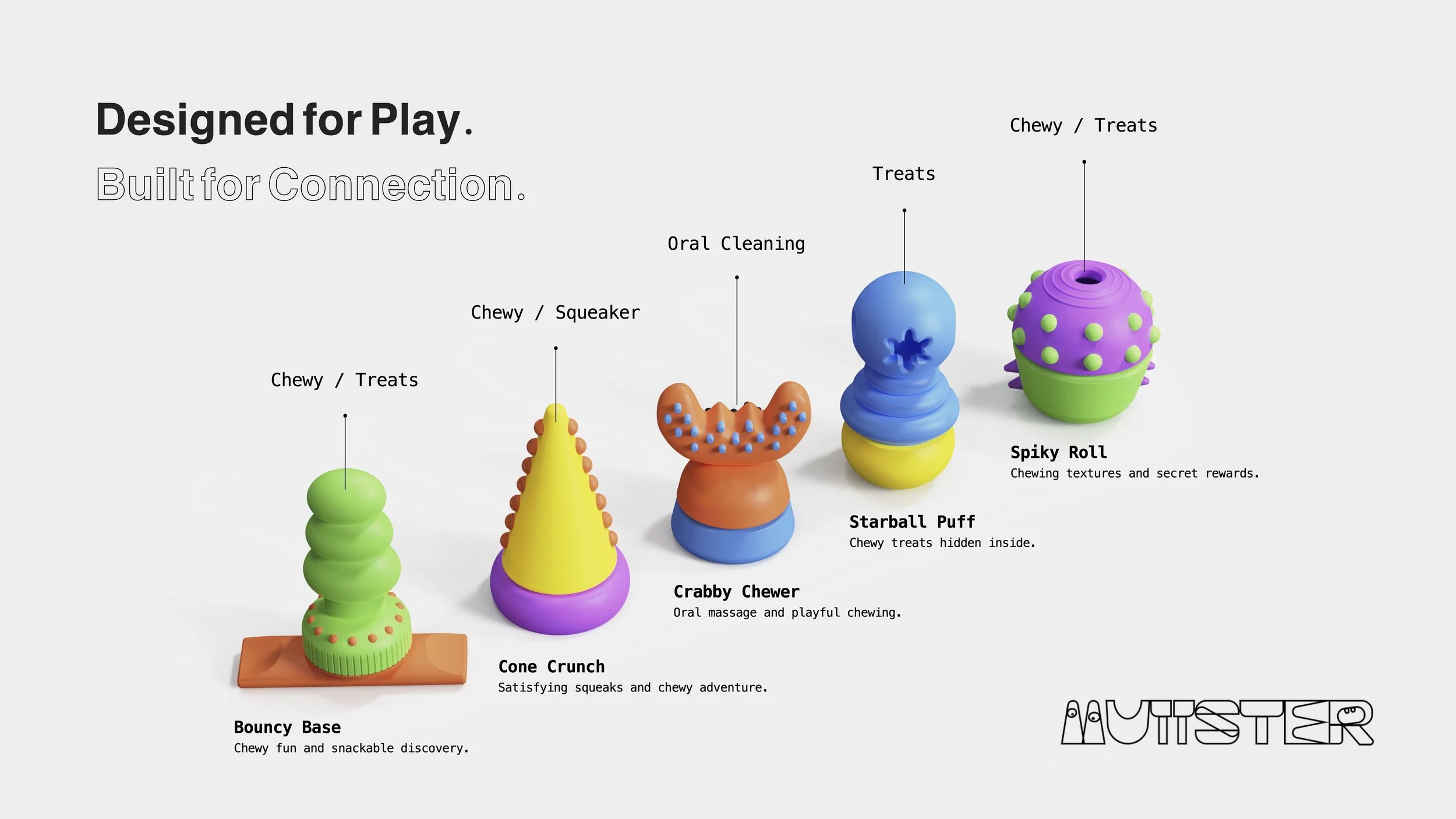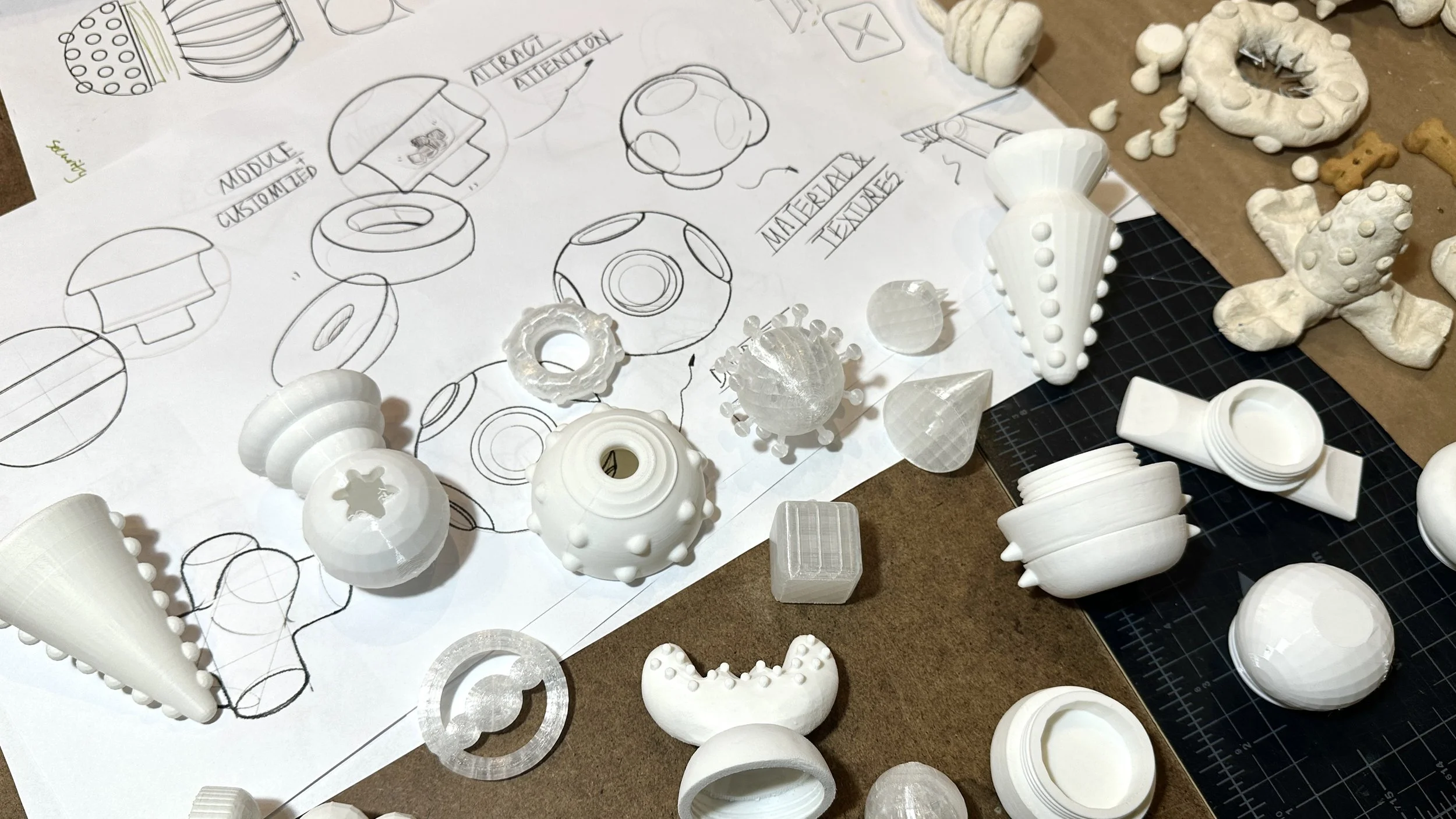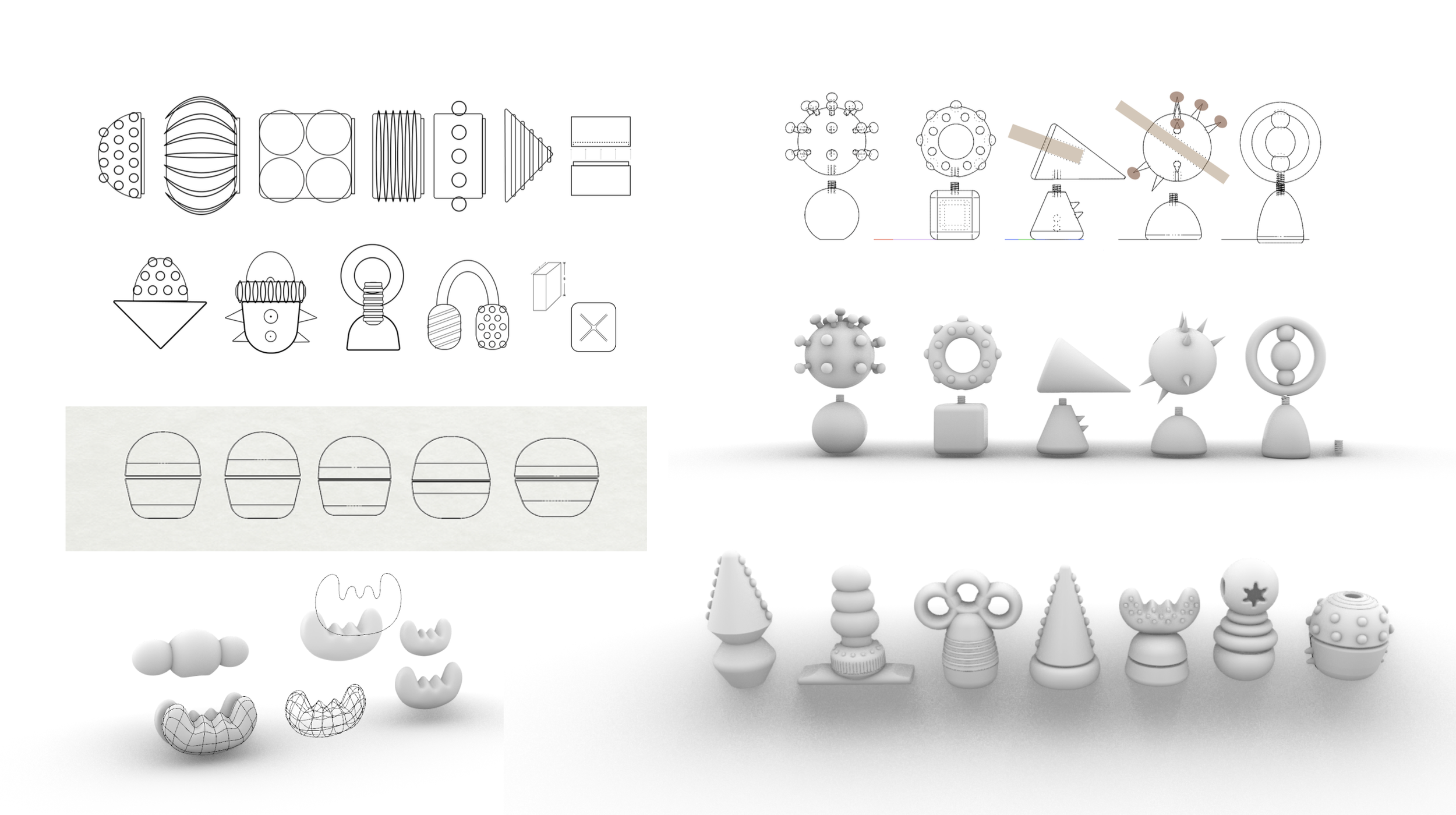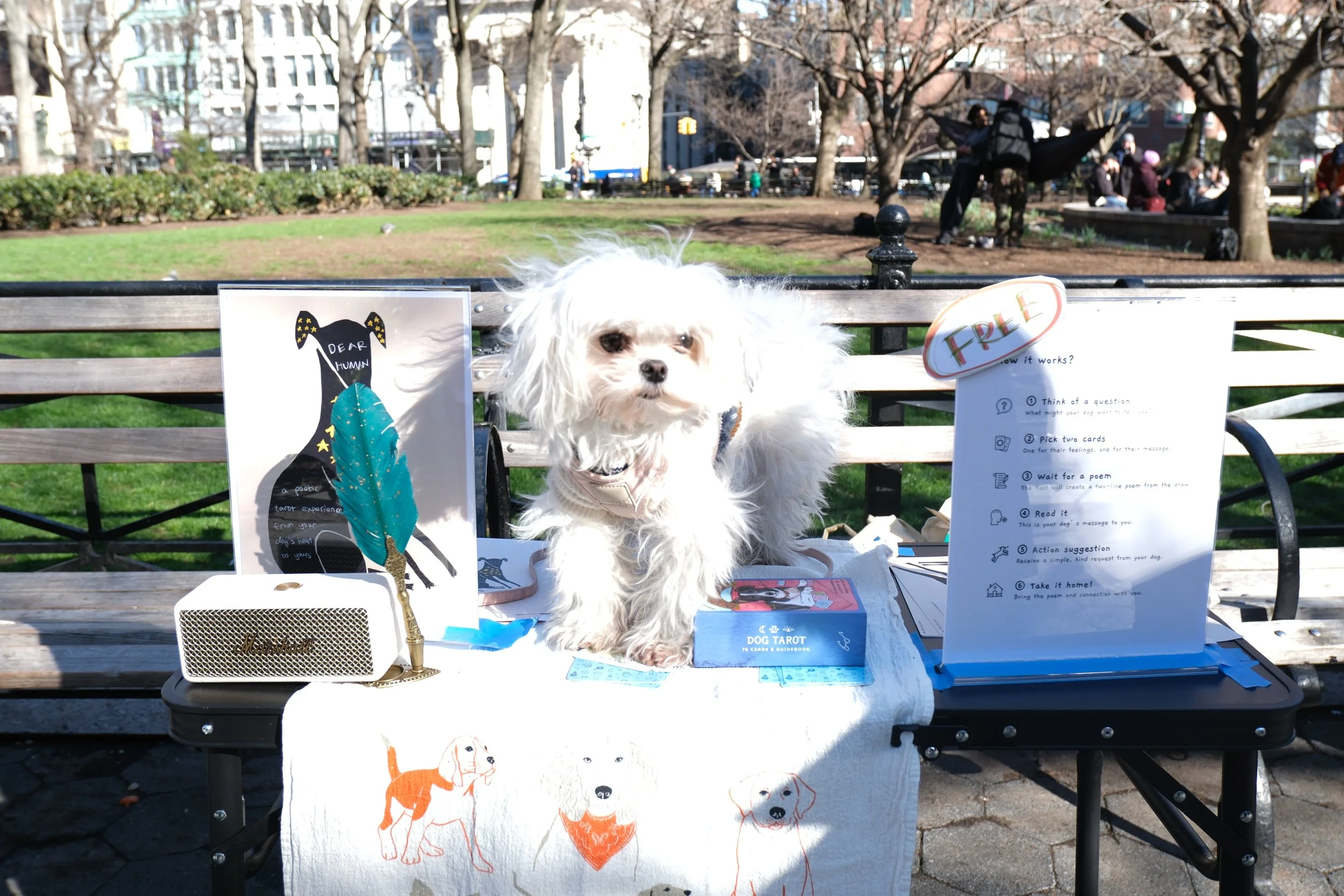In the Dog House: Enhancing Human-Pet Interactions and Alleviating Separation Anxiety
Ningfu (Nymph) Yang’s thesis, In the Dog House: Enhancing Human-Pet Interactions and Alleviating Separation Anxiety, explores how design can ease the emotional strain of separation for both pets and their humans. Rooted in her own experience—and shared by many pet owners—Nymph addresses the growing concern of leaving pets alone and the anxiety it can trigger on both sides. As pet ownership continues to rise globally, her work points to the urgent need for more compassionate, emotionally attuned human-animal relationships.
“Separation anxiety in dogs is not just behavioral—it’s emotional and relational. Design can translate invisible stress signals into meaningful interventions that support both species.”
Through four distinct but interconnected projects, Nymph investigates how design can foster more compassionate, emotionally attuned relationships across species. Vitapawssupports more confident vet visits by guiding pet owners in capturing diagnostically relevant videos. Tailmate maps city spaces through dogs’ emotional experiences, reframing walks as empathetic urban exploration. MUTTster is a modular smart toy that sustains connection during long absences through play and sensor-driven updates. And Dear Human, a tarot-inspired storytelling experience, invites owners to imagine and reflect on their pets’ inner lives. Together, these works propose a shift from caretaking rooted in worry to one grounded in empathy, creativity, and reciprocal emotional understanding.









Vitapaws — AI Pre-Diagnosis App
Vitapaws is a health-assistive tool designed to support pet owners in identifying and documenting their pets’ unusual behaviors before visiting the vet. The app uses AI-assisted prompts to help users capture clearer, more relevant video evidence, improving communication between pet owners and veterinarians. By guiding owners through this often stressful process, Vitapaws reduces anxiety and increases confidence—ultimately enhancing care for both humans and animals.
Designed with busy and caring pet owners in mind, Vitapaws addresses a common challenge: struggling to accurately describe a pet’s symptoms during short, high-pressure vet appointments. The app provides step-by-step guidance tailored to the behaviors users observe, and uses AI not to diagnose but to assist in capturing the most useful footage. “Instead of trying to diagnose directly, I wanted the app to act as a smart assistant,” Nymph explains. “It’s about helping owners communicate what they’re seeing more effectively.” The tool’s empathy-centered design aims to transform moments of panic into structured, confident action.
Throughout development, Nymph conducted multiple rounds of testing and iteration. “Early on, I tested low-fidelity prototypes with pet owners to see how they responded to the video prompts,” she says. Their feedback helped refine the user flow and inspired the addition of a keyword-based behavior search feature to better reflect real pet conditions. Nymph also explored the technical feasibility of pose estimation for dogs, using DeepLabCut to test how accurately specific postures or movements could be identified. While the final version of Vitapaws doesn’t include direct diagnosis, these trials informed the app’s focus: helping caregivers capture diagnostically relevant footage without losing sight of the emotional realities of caring for a sick pet.
Tailmate — Pet-Friendly Community
Tailmate is a pet-friendly mapping and community service designed to help dog owners find environments that match their pets’ emotional and behavioral needs. Moving beyond standard directories of parks or cafés, the service introduces emotional tagging, real pet-user reviews, and a gamified reward system to encourage exploration and reduce pet separation anxiety. By making everyday outings more intentional and emotionally aligned, Tailmate promotes stronger human-pet relationships and a more compassionate urban pet culture.
Created with emotionally sensitive or anxious pets in mind, Tailmate helps owners better understand what environments their dogs genuinely enjoy. Users can interact with a dynamic map to tag locations based on their pet’s emotional responses—labels like “calm,” “curious,” or “overstimulated” shift the focus from where to go to how a pet feels once there. “Tailmate reframes outings as emotionally enriching experiences,” Nymph explains. “It’s not just about exercise—it’s about supporting the pet’s emotional well-being too.” The service’s empathetic and community-driven design allows users to see the city from their dog’s point of view.
In developing Tailmate, Nymph sought to address the emotional mismatch often seen between pet needs and urban environments. “I started by researching common stress triggers in cities—like noise, crowd density, and lack of stimulation,” she says, “and spoke with pet owners about their daily routines and challenges.” These insights led to the concept of emotional tagging and a user-driven feedback loop where pet owners can record how their dogs responded to specific places. Nymph tested several map-based prototypes, gradually refining the interface and simplifying tag options to ensure they felt intuitive and non-judgmental. She also explored additional features like seasonal recommendations, notification-based mood tracking, and gamified ‘mood badges’ that reward thoughtful exploration. Each iteration moved Tailmate closer to what she describes as “a feeling-first navigation tool—for both dogs and their humans.”
MUTTster—modular smart toy system
MUTTster is a modular smart toy system that enhances remote emotional interaction between dogs and their owners. Created for pets left home alone, the system includes swappable sensory modules tailored for different types of play—chewing, pulling, exploring, or treat-based engagement. Equipped with motion sensors, the toy detects how a dog interacts with it and sends updates to the owner's phone. If the dog has been inactive for a while, the app prompts gentle re-engagement through remote voice messages or activating playful toy sounds. By combining physical enrichment with emotional connection, MUTTster helps ease the stress of separation for both pets and their humans.
MUTTster is made for owners who worry about their dogs’ emotional well-being during long absences—particularly those with anxious or highly active pets. The interactive system not only keeps dogs entertained, but also turns their activity into reassuring feedback for the owner. “MUTTster stands out because it’s modular and personalizable,” Nymph says. “Each part can be customized to match a dog’s specific play style and emotional needs.” The emotional impact is central: by blending companionship, care, and play into one physical system, MUTTster helps owners feel present, even when physically distant.
The idea for MUTTster was sparked by conversations with pet owners who described guilt and uncertainty about leaving their dogs alone. “I was interested in how a physical object could offer emotional feedback,” Nymph explains. She went on to design six interchangeable module shapes, including treat-dispensing units, oral care textures, and chew-friendly surfaces. All parts were engineered with a unified interface so that any 'A' and 'B' component could connect modularly.
Through user testing, durability, hygiene, and emotional responsiveness emerged as top priorities—leading to careful material refinements and additional app features. Nymph also prototyped a sensor-enabled version using Arduino and microphone inputs, writing Python code to simulate breath-triggered LED feedback and motion tracking. “Even though the first production version may launch without the sensors,” she notes, “the technical groundwork is already there for future development.” MUTTster ultimately offers more than distraction; it acts as a comforting bridge of presence—sustaining emotional connection through intelligent, responsive design.
Dear Human — Emotional Bonding Experience
Dear Human is an emotional storytelling experience that invites pet owners to see the world from their animals’ perspective. Inspired by tarot, the project uses a set of illustrated cards to explore the inner emotional states of pets and their responses to their humans. Owners draw two cards—one representing their pet’s internal state, the other reflecting their emotional bond—and read short, poetic interpretations aloud. Designed as both a public interaction and a take-home artifact, Dear Human offers a moment of quiet, introspective connection between species.
This project is for pet lovers who sense that animals feel more than they can express—and who want a way to listen more deeply. “I wanted to create a format where pets become storytellers, and humans are invited to listen—not with logic, but with empathy,” says Nymph. The experience doesn’t rely on data or sensors, but on metaphor, imagination, and emotional presence. What makes it powerful is its subtlety: a space for reflection in a world full of noise, where owners can slow down, tune in, and feel with their pets instead of for them.
“Dear Human was born from a desire to honor the quieter forms of emotional communication between people and their pets,” Nymph explains. Drawing inspiration from tarot and poetic traditions, she created an initial deck of 10–12 cards across two categories and tested them through public pop-ups—including one in Union Square Park, where participants drew cards and read poems aloud. “Their responses—surprised, moved, sometimes tearful—taught me how to refine the tone of the writing and the pacing of the interaction.” Over time, the project grew to include bilingual instructions, a visual guidebook, and take-home mementos so the emotional resonance could extend beyond the experience itself. While lower-tech than her other thesis projects, Dear Human represents the heart of the work: a space where emotional listening becomes its own form of care.
For a deeper look into Nymph's thesis process, research, and reflections, explore the following links:
Thesis Repository on Notion – a comprehensive archive of Nymph's thesis development
Thesis Blogposts on Medium – extended reflections and insights

